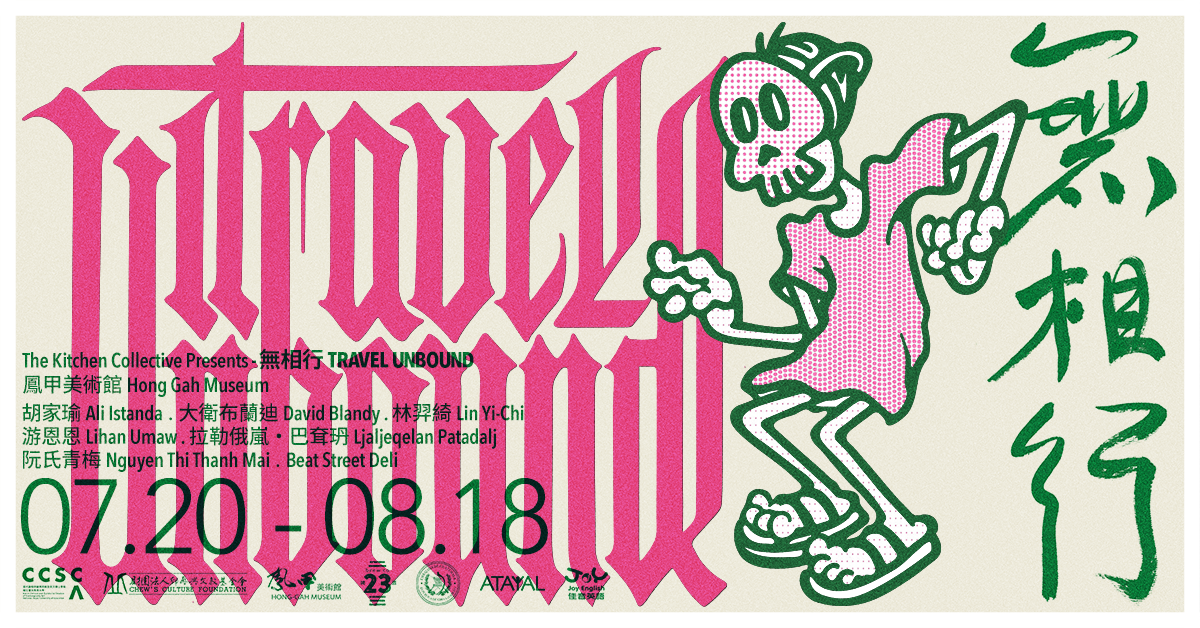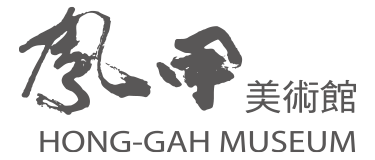BACK
Travel Unbound—An Exhibition That Navigates The Landscapes Of Identity

Travel Unbound – An Exhibition That Navigates The Landscapes Of Identity
A hut, a rice field, a jungle, a cemetery, a walking tree, and a requiem.
An assemblage of unfamiliar landscapes might be what best describes this exhibition. One finds themself in a make-shift hut hanging photoshopped pictures of those who never got an ID card. In a slip of a moment, the camera follows a couple in traditional clothing through a jungle, then a surreal extended rice field where naked bodies take turns going in and out of the frame. The tale of a walking tree is then narrated on a woodblock, embracing another worldview of an indigenous community. In the cinema room, a graveyard is revealed, lying beneath a richly biodiverse mire where a British soldier was kept imprisoned. Finally, at the end of the corridor is a door to hypnotic recollections of a father.
This seemingly temporal flow reveals passages across linear times and spaces where no specific anchor point is designated, thus the title Travel Unbound. By means of embracing Buddhist worldview in 《無相行》 as the Chinese title, we propose an undetermined yet encompassing form of moving wherein the traveler is often exposed to physical, mental, and political challenges that may shape a subtle perception of their identity. The exhibition frames this specific travel not only from the position of the audience, but also the individuals and communities featured in the artworks, as well as the artists themselves. Specifically, such displacement is found in migration, war, oppression, and marginalization, whose legacies are all deeply ingrained in the succeeding generations. Thus, the artworks deal with varying and shifting constituents of the self in terms of citizenship, gender, indigeneity, and genealogy. With that, Travel Unbound is a conscious attempt by the artists to visit history, challenge state narratives, and give voice to their own unheard people who have been uprooted and dislocated across multiple geographies.
It would be inadequate to talk about Travel Unbound without interrogating its geographies of disjunctive belonging. The question of identity is embedded in the landscapes of Taiwan, Singapore, Vietnam, and Cambodia, and is vested with imagination, fiction, myth, and memories that extend beyond a mere physical environment or a socio-cultural visualization. Setting the stage for an alternative world, the artwork is a site of contestation where human bodies are intimate yet estranged from their own landscape. This can be seen in the kitschy, exaggerated photos of Cambodian-Vietnamese immigrants in mock-up clothes and backgrounds in Nguyen Thi Thanh Mai’s Travels or the interactive displacement of objects and naked bodies in Ljaljeqelan Patadalj’s Rakanaw and Rakavayan. In Lin Yi-Chi’s Requiem for the Dream of Father, the figure strolls in discrete spaces and performs uncanny rituals to resurrect the specter of authoritarian rule haunting her father. In these contexts, identity revolves around the body that traverses in between different arenas.
Not limited to human bodies as the sole travelers, underlying intangible spirits derived from rich ecologies continue to shape memories, worldviews, and personal history within broader contexts at hand. Ali Istanda’s The Walking Tree relays her Bunun distinct worldview and belief system grounded in a genuine care for the dwelling habitat. Similarly in David Blandy’s Empire of Swamp, a crocodile and the lingering soul of the British soldier morph into a poetic humming of Bukit Brown Cemetery that embodies the enduring legacies of colonialism, migration, and urban planning. Embracing the agency of non-human/more-than-human entities in configuring the “scape”, be it physical or mental, Travel Unbound steers away from exerting a superiority over nature. Instead, it endeavors to employ legend and fable as entry points into the very nuances of identity construction.
The exhibition foregrounds traveling as “fictioning” the landscape with which identity continues to entangle and disentangle in multiple trajectories. Thus, Travel Unbound challenges notions of destination as determined, space as physical, bodies as fixed. At the end of the day, we all travel unbound together.
—
Curatorial Team: The Kitchen Collective (Daisy Bailey, Hue Nguyen, James A. Holland, Quinn)
Organizers: Chew’s Culture Foundation, Hong-Gah Museum, National University of Education CCSCA (Critical and Curatorial Studies of Contemporary Art)
Sponsors: Embassy of the Republic of Guatemala, 23 Brewing Co., ATAYAL, New Bloom, Joy English
Dates|2024.07.20-08.18
Curators| The Kitchen Collective (Daisy Bailey, Hue Nguyen, James A. Holland, Quinn)
Artists|Ljaljeqelan Patadalj (Guo Yue Yang), Nguyen Thi Thanh Mai, David Blandy, Lihan Umaw (You En En), Ali Istanda (Hu Jia Yu), Lin Yi-Chi, Beat Street Deli
Venue|Hong-Gah Museum
Opening Reception|2024.07.20 (Sat.) 17:30 – 20:30
Opening Performance by artist Lihan Umaw|2024.07.20 (Sat.) 18:10 – 18:30
Curator Tour|2024.07.27 (Sat.) & 08.10 (Sat.) 14:00-14:40
Artist Talk + Finissage Party|2024.08.18 (Sun.) 15:00-19:00
















